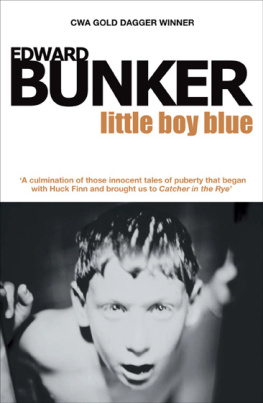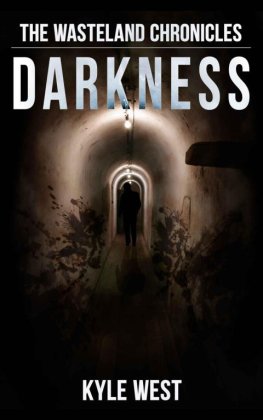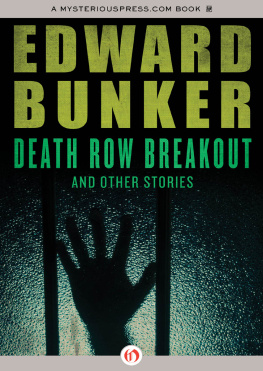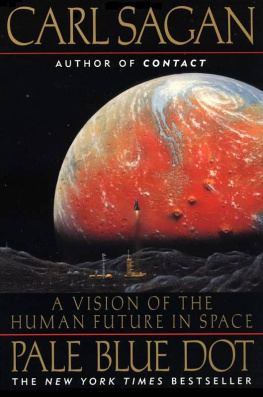Edward Bunker - Little Boy Blue
Here you can read online Edward Bunker - Little Boy Blue full text of the book (entire story) in english for free. Download pdf and epub, get meaning, cover and reviews about this ebook. year: 1998, publisher: St. Martins Griffin, genre: Detective and thriller. Description of the work, (preface) as well as reviews are available. Best literature library LitArk.com created for fans of good reading and offers a wide selection of genres:
Romance novel
Science fiction
Adventure
Detective
Science
History
Home and family
Prose
Art
Politics
Computer
Non-fiction
Religion
Business
Children
Humor
Choose a favorite category and find really read worthwhile books. Enjoy immersion in the world of imagination, feel the emotions of the characters or learn something new for yourself, make an fascinating discovery.
- Book:Little Boy Blue
- Author:
- Publisher:St. Martins Griffin
- Genre:
- Year:1998
- Rating:4 / 5
- Favourites:Add to favourites
- Your mark:
- 80
- 1
- 2
- 3
- 4
- 5
Little Boy Blue: summary, description and annotation
We offer to read an annotation, description, summary or preface (depends on what the author of the book "Little Boy Blue" wrote himself). If you haven't found the necessary information about the book — write in the comments, we will try to find it.
Edward Bunker: author's other books
Who wrote Little Boy Blue? Find out the surname, the name of the author of the book and a list of all author's works by series.
Little Boy Blue — read online for free the complete book (whole text) full work
Below is the text of the book, divided by pages. System saving the place of the last page read, allows you to conveniently read the book "Little Boy Blue" online for free, without having to search again every time where you left off. Put a bookmark, and you can go to the page where you finished reading at any time.
Font size:
Interval:
Bookmark:
Little Boy Blue
Edward Bunker
Contents
In the summer of 1943, a plain black Fordsedan carried three people through the Cahuenga Pass from Los Angeles into theSan Fernando Valley. A middle-aged female social worker was driving. Aneleven-year-old boy was in the middle, and the boys father was on theright. All of them stared through the windshield with somber faces. The socialworker looked stern, but it was really a practiced stoicism insulating heremotions from the pain of sympathy. The father was silently determined, but hisdetermination was furrowed with worry; his jaw muscles pulsed as he sucked on acigarette. The boys lips were curled in until almost hidden, andoccasionally he bit them inside to stifle the smoldering tantrum. He was bothworking himself up and restraining himself. Rebellion was coming, but thisparticular moment was too soon.
Beyond Cahuenga Pass the large highway curvedto follow the base of the hills dotted with white houses buried in greenslopes. The social worker turned off onto a narrow, straight road through endlessorange groves. Every so often there was a flash of white as the car passed aneat frame house set back from the road. The day was hot and the air dusty, and many insects splattered against the windshield.Once they passed two bare-legged girls riding bareback on a fat mare. In 1943,the San Fernando Valley was still the countrysidewithout smog andwithout tract homeswhere a few small communities were separated by milesof citrus and alfalfa.
The boy stared ahead, as if transfixed by thewhite line in the black road that disappeared in shimmering heat waves.Actually he saw nothing and heard nothing. He was thinking of how manyidentical trips hed taken since he was four years old, to yet anotherplace to be ruled by strangers. It was nearly all he could rememberboarding schools, military schools, foster homesthose places andsnatches of ugly scenes, tumult, and tears, the police coming to keep thepeace. Whenever he thought of his mother it was with her face contorted intears. He knew he disliked her without knowing why. He remembered the day whenhis father walked out, and he had run after him, dragging a toy Indianheaddress, tugging at the car door and begging to go along. His father haddriven away, leaving him sprawled in tears in the dirt, and his mother had comewith a wooden coat hanger to make him scream even louder.
He remembered being in a courtroom butnothing about what happened. Then his mother was gone, never seen again, nevermentioned. After that began the foster homes and militaryschools. He couldnt even remember the first one, except thathed been caught trying to run away on a rainy Sunday morning. His memoryimages grew clearer concerning later places; he remembered other runaways, onelasting six days, and fights and temper tantrums. Hed been to so manydifferent places because each one threw him out.
At first his rebellion had been blind, areflex response to pain the pain of loneliness and no love, though hehad no names for these things, not even now. Something in him went out ofkilter when he confronted authority, and he was prone to violent tantrums onslight provocation. Favored boys, especially in military school, looked down onhim and provoked the rages, which brought punishment that caused him torun away. One by one the boys homes and military schools told his fatherthat the boy would have to go. Some people thought he was epileptic orpsychotic, but an electroencephalogram proved negative, and a psychiatristdoing volunteer work for the Community Chest found him normal. Whenever hewas thrown out of a place, he got to stay in his fathers furnished roomfor a few days or a week, sleeping on a foldup cot. He was happy during theseinterludes. Rebellion and chaos served a purposethey got him away fromtorment. The time between arrival and explosion got shorter and shorter.
Now, as the tires consumed the dusty road,the boy worked himself up, anticipating what he would do. Tears and pleas hadbeen futile, his father not deaf to them but helpless to change things. He toohad no choice. He was in his fifties, worn and thin, his skin red and leatheredfrom alcohol and laboring in the sun. He wasnt an alcoholic, but inrecent years he drank a lot because of his wife, his son, and the Depression. Agood carpenter, he was proud of his craft, but work had been impossible fornearly a decade. Only with the start of the war had he been working steadily.He would have been happy except for his son. Why couldnt the boy acceptthe situation, the necessity of boarding him out? The man had told the boythat the law required someone to look after him. If only there were afamilyaunts, uncles, cousins, friendsbut both the man and hisformer wife were orphans who had come here from southern Ohio, thinking that theydbuild a new life in sunny southern California. The man had an older sister wholived in Louisville, but he hadnt seen her for twenty years.
The man felt guilty about his son and salvedhis conscience by paying more than he could afford on the military schools andboarding homes. He scrimped on his own meals, lived in a cheap room. The boydidnt seem to notice the sacrifices. The man wondered if the boy wascrazy.
The man flipped his spent cigarette throughthe window and suddenly felt angry. Hed spoiled his son. That was thetrouble. Only a spoiled boy would run away, fight, steal, throw tantrums. The man had done his best. He knew hed done his best.
The social worker kept her hands firmly onthe wheel, her no- nonsense shoes on the gas and clutch. Traffic lights weregauged early to shift down the gears. Shed learned to drive when she wasforty, having grown up where automobiles were not part of the landscape, andshe was always conscious of what she was doing. But with an empty road andmoderate speed, she had room to think. She could feel the boy beside her, hisbody well known to the welfare agencies. Eleven years old and hedalready accumulated a file. A bright boy, in the top twopercent in intelligence, though his chaotic behavior and emotional problems kepthim from being a good student. The boy had potential, but it would bewasted. Years ago the situation would have agonized her, but for her own peace of mind shed developed a protective shellaround her feelings. She did all she could to help but didnt invest hersoul in a case. Too many cases failed, as if divorces and foster homes wereprecursors to Juvenile Hall, reform school, and prison. This boyschances for a successful life were very slim, made worse by his tempestuousnature. His unique potential would develop into unique destructiveness. What apity, she thought, that theres no direct relationship between theintellect and the spirit. This boy needed a home and love for salvation, andnobody could provide them, certainly no agency or institution.
Were early, she said.We could stop for a bite somewhere.
For a moment the man didnt respond,and then, as the words filtered through his reverie, he seemed startled. Helooked down at his sona boy with a head too big for his body and eyes toobig for his head. You hungry, Alex?
Alex shook his head, not wanting to speak andbreak his gathering emotions. He needed everything for the loomingconflict.
The man, Clem Hammond, flushed. He too had atemper. He shrugged an apology to the woman for his sons churlishness,thinking what his own father would have done faced with such a snotty attitude:the stern farmer would have cut a switch and raised welts. Times had surelychanged, and not necessarily for the better. Yet Clem could understand Alexsmisery, and he was sorry for being angry with the boy. We could stop andget some airplane magazines. Then to the social worker he addedwith pride, Alex doesnt like comic books.
I dont want em,Alex said, without looking around. His hands were pressed between his legs,clenched into white-knuckled fists. Acid burned in his stomach, and tearspressed behind his eyes. I dont want to go there, he moaned inside dont dont just take mehome, Pop. Ill sleep on the floor and I wont be any troubleplease, Pop please, God
Next pageFont size:
Interval:
Bookmark:
Similar books «Little Boy Blue»
Look at similar books to Little Boy Blue. We have selected literature similar in name and meaning in the hope of providing readers with more options to find new, interesting, not yet read works.
Discussion, reviews of the book Little Boy Blue and just readers' own opinions. Leave your comments, write what you think about the work, its meaning or the main characters. Specify what exactly you liked and what you didn't like, and why you think so.












